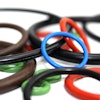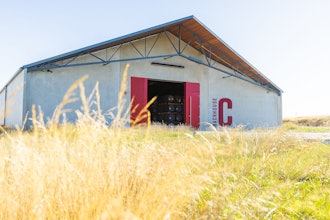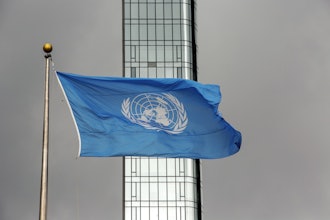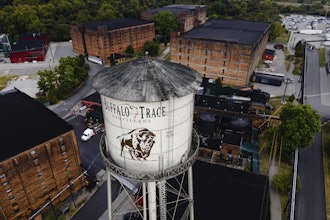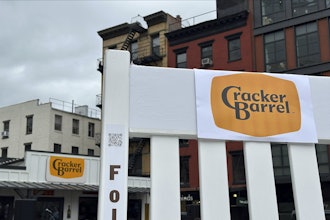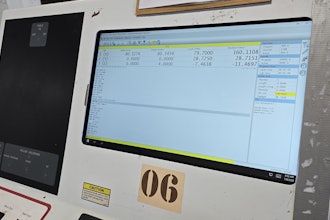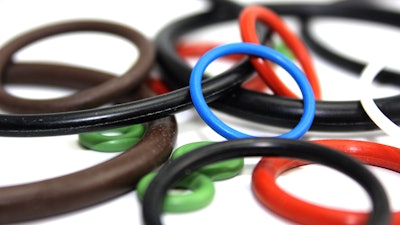
In heavily regulated industries like food and beverage, oil and gas, and aerospace, the end-products face strict compliance mandates. Additionally, many regulations are also specific to the production facilities and the manufacturing line equipment components. For example, industrial gaskets play a critical role in ensuring the proper functioning of machinery and equipment in each of these markets. They are indispensable in helping manufacturers meet stringent industry standards, while also subject to numerous regulations.
Understanding industry regulations is key to helping distributors and manufacturers ensure their products remain compliant.
Food & Beverage Regulations
The U.S. Food and Drug Administration plays a critical role in ensuring the safety and integrity of food products in the United States. Established in 1906 under the Pure Food and Drugs Act, the FDA's mandate has expanded significantly over the years, making it one of the key regulatory bodies overseeing the food industry. In 2011, the Food Safety Modernization Act (FSMA) was signed into law and represents the most comprehensive overhaul of food safety in over 70 years. FSMA shifts the FDA’s focus from responding to food safety incidents to preventing them. Part of FSMA includes Good Manufacturing Practices (GMPs), guidelines that food manufacturers must follow to ensure products are consistently produced and controlled according to quality standards. These include regulations on sanitation, equipment maintenance, employee hygiene, and processes to prevent contamination. Non-compliance with GMPs can result in enforcement actions, including facility shutdowns or product recalls.
Manufacturers must select the food contact material – any materials that have foreseeable direct or indirect contact with food or potable beverages – that is appropriate for their food category to reduce the risk of contamination. Important components in processing plants are gaskets, O-rings, and seals that prevent leaks, maintain pressure, and ensure smooth operations. These seals must be made from non-toxic materials to prevent contamination and maintain food safety while also being durable and resistant to harsh conditions. Their role is critical in ensuring cleanliness and maintaining product quality standards.
To deliver FDA approved materials, sealant manufacturers follow rigorous processes, including traceability of raw materials, regular testing, and maintaining detailed documentation to demonstrate compliance.
Oil and Gas Regulations
There is substantial environmental regulation of oil and gas exploration and production at the federal and state levels through the Environmental Protection Agency (EPA). The Federal Energy Regulatory Commission (FERC) is the primary body that regulates oil and gas companies, although a number of other federal offices oversee specific components of the oil and gas industry. It is estimated, however, that states conduct between 80 to 90 percent of all enforcement actions affecting the industry, but these actions are often based on federal environmental regulations. The regulations depend on whether the surface location of the oil and gas is owned by the federal government, state government or by private individuals, and whether the location is onshore or offshore.
In general, most drilling and production is regulated by the states. Federal regulations primarily safeguard water and air quality and worker safety, as well as exploration and production on Native American lands, federal lands, and the Outer Continental Shelf.
In March 2024, the EPA introduced comprehensive regulations to reduce methane emissions from oil and gas operations. These rules apply to both new and existing facilities, mandating the use of advanced technologies for more frequent detection and repair of leaks. Leaks in this industry can lead to catastrophic consequences, including environmental pollution, safety hazards, and significant financial losses.
Gaskets play a pivotal role in sealing systems, preventing leaks, and ensuring equipment integrity. For example, they are critical in pipelines by providing a tight seal in flange joints, they maintain pressure and prevent leaks in valves and pumps, and stop leaks in heat exchangers and compressors.
Aerospace Safety and Regulations
Aerospace standards ensure that complex systems are built to work safely, reliably, and in compliance with increasing regulations. These standards are in every sector: commercial aviation, military aircraft development, and space exploration, and ensure that suppliers and engineers are all working from the same specifications, enabling them to produce safe and reliable products from aircraft to military spacecraft.
These standards define processes, testing protocols, design specifications and quality assurance benchmarks for everything from avionics systems to engines. Without consistent adherence to aerospace industry standards, the risk of equipment failure, certification delays or legal noncompliance increases dramatically – particularly in high-risk environments like outer space exploration, military aircraft operations and civil aviation.
Aerospace standards are closely linked with regulatory authority requirements. Agencies like the Federal Aviation Administration (FAA) and the European Union Aviation Safety Agency (EASA) often incorporate industry-developed standards into their regulations, making standards essential for companies that want to maintain certification and compliance.
Aerospace gaskets are critical components that must meet stringent regulations and standards to ensure aircraft safety and performance. These gaskets, often made from advanced materials, must withstand extreme temperatures, pressures, and chemical exposure while maintaining sealing integrity. Key standards like AS9100 (quality management) and AMS (Aerospace Material Specifications) guide their design and production.
Not All Parts Are Created Equal
Heavily regulated industries have a greater dependence on precision equipment. Ordering off-the-shelf parts poses risks for unplanned downtime and non-compliance. Because of this, many companies turn to customized solutions from third-party manufacturers for parts that are at scale, on demand, and engineered according to industry-specific compliance. Forward-thinking supply manufacturers have invested in technology such as advanced CAD/CAM software, dedicated 3D prototyping, and high-precision waterjet cutting machines, and even maintain a vast inventory of engineering-grade materials that meet these requirements.
Demanding industrial environments like food and beverage, oil and gas, and aerospace require custom gaskets that provide a precise fit and enhanced sealing capabilities compared to standard gaskets, ensuring a tighter seal between flanges and other components. This tailored fit minimizes leak paths, prevents pressure loss, and reduces the risk of equipment failure, contributing to safer and more efficient operations. Key to achieving these outcomes is partnering with a manufacturer that can navigate challenges, has the pulse on evolving government regulations, and collaboratively develops materials and designs that will remain compliant for years to come, not just today.
Frank Childs is the vice president of operations of American Packing and Gasket, a Houston-based manufacturer and distributor of fluid sealing and conveyance products.
